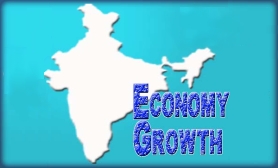|

|
India must remove investment barriers for growth: IMF
|
|

|
|
| Top Stories |
 |
|
|
|
Arun Kumar | 10 Oct, 2013
India needs to remove barriers to investment, maintain the credibility
of its monetary and fiscal policies and keep the budget deficit reined
in to return to a high growth path, according to the International
Monetary Fund (IMF).
A number of domestic factors have played an
important role in India's growth slowing down quite sharply, Rupa
Duttagupta, deputy chief of IMF World Economic Outlook Division, told
reporters after IMF's latest projections lowered India's growth for
fiscal 2013 to 3.8 percent.
The IMF's Fall 2013 World Economic
Outlook (WEO) expects India to gradually pick up to 5.1 percent next
year, again one percentage point lower than projected in July, but "on
the structural side, we still see investment recovery to be very slow".
"A
lot of supply-side bottlenecks, say constraints in the mining sector,
in the power sector, as well as, in general, investment sentiment has
been very weak in terms of slow project approvals," Duttagupta said.
"These
things have played a role in keeping investment still pretty subdued.
Also, given much tighter monetary conditions, given the higher
inflation, higher interest rates have played a role in keeping
consumption demand pretty subdued," she said.
But Duttagupta
noted "more recently the exchange rate has depreciated significantly in
real effective terms, and agricultural production is also undergoing a
strong rebound".
"So, built on these factors and high-frequency
indicators show that even investment growth is picking up, we expect
growth to pick up next year."
Noting that risks of higher capital
outflows once unconventional policies unwind are always there, Dasgupta
said, it was very important for India and Indonesia "to sort of
maintain the credibility on both their monetary and fiscal policies".
The
central banks of both countries in recent months have raised their
interest rates given higher inflation "which helps because inflation is
still very high in both countries", she said.
"For India, also,
an important priority would be to make sure that the fiscal deficit
target for the FY2013 budget is maintained even if additional measures
are needed," Duttagupta said.
Olivier Blanchard, Economic
Counsellor and Director of the Research Department, also stressed the
need for urgent structural reforms "from rebalancing toward consumption
in China to removing barriers to investment in India or Brazil."
|
|
|
| |
|
|
|
|
|
|
|
|
|
|
|
|
|
|
| |
| Customs Exchange Rates |
| Currency |
Import |
Export |
US Dollar
|
₹91.35
|
89.65 |
UK Pound
|
₹125.3
|
₹121.3 |
Euro
|
₹108.5
|
₹104.85 |
| Japanese
Yen |
₹58.65 |
₹56.8 |
| As on 19 Feb, 2026 |
|
|
| Daily Poll |
 |
 |
| What is your primary "Make or Break" expectation from the Finance Minister this year? |
|
|
|
|
|
| Commented Stories |
 |
|
|
|
|
|
| |
|